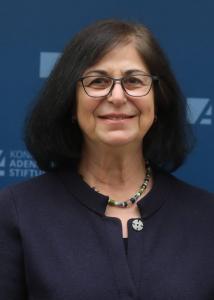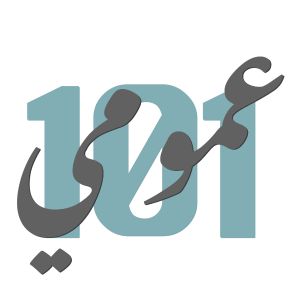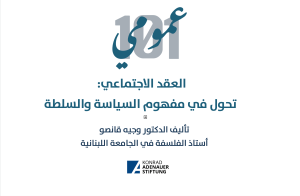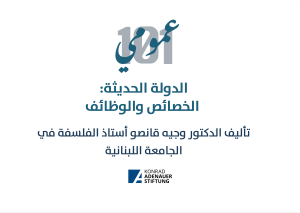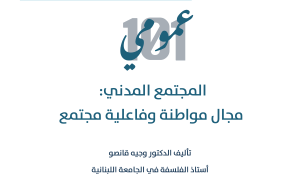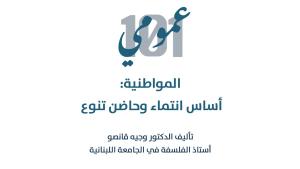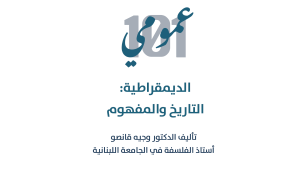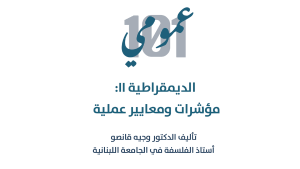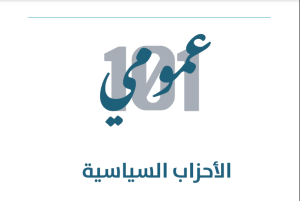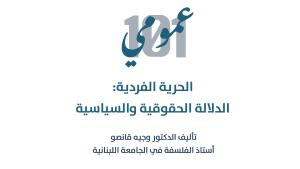Civic education is a prerequisite for a thriving society and a sustainable and inclusive political framework. Based on this shared conviction, KAS Jordan and its community partner Ruwwad Al Tanmeya, a youth-focused NGO based in East Amman, in collaboration with Aramram Citizen Media and with Dr. Wajih Kanso as an academic advisor, are launching the project Umumi 101.
Umumi 101 is a multidimensional project that combines on-site and digital approaches in order to motivate and enhance civic engagement and participation among Jordanian youth. Key concepts of political philosophy are explained through youth-accessible formats, including a short video series, and further explored in academic educational papers. The topics and their relevance for Jordanian and Arab societies are discussed in regular face-to-face and online discussions.
In 2021 we are working on the following concepts: (1) The Public Space and the Private Space, (2) The Social Contract, (3) The Modern State, (4) Civil Society, (5) Citizenship, (6) Democracy – Concept and History , (7) Democracy – Practical Criteria and Indicators (8) Political Parties, (9) Individual Liberty.
Below you can find all episodes of Umumi101 in Arabic with English subtitles. For watching the episodes with Arabic subtitle and sharing them you can find all episodes on the Facebook Pages of Konrad Adenauer Stiftung Jordan Office and Aramram!
Chapter 1: The Public and the Private Space
This video helps you understand the difference between the public and the private space, how a private matter can become a public one, and what the connection between democracy and public opinion is.
For further information on this topic, including the role of social media in public discourse and political decision-making, please read our academic paper on the right side of the page.
Chapter 2: The Social Contract
This episode of our Umumi101 Series explains the concept of the social contract and how a tribal society can differ from a society based on a civil contract. In this video, people are being encouraged to form free, voluntary civil bonds that benefit society beyond political or societal status and our personal feelings towards a problem. If people feel equal and are motivated to think rationally and participate in a public debate in order to achieve general consensus, we would see more political engagement.
For further information on this topic, including the difference between religious identity and political identity, how the social contract is formed in Arab societies, and much more please read our academic paper on the right side of the page.
Chapter 3: The Modern State
In the third chapter of our program, we delve into the subject of the emergence of the modern state in Europe, such as the French Revolution, whose main causes were the desire to get rid of the feudal system. In addition to identifying the characteristics of the modern state, this chapter examines the sectoral specialization, the sovereignty of the state, and whether our Arab world has the tools to realise a modern state.
For further information on this topic, please read our academic paper on the right side of the page.
Chapter 4: Civil Society
In the fourth episode of our Umumi101 series we explore what civil society is and how it relates to the state. From this Video you will learn what the benefits of a strong civil society are and how it can play a role in the decision-making process of a state. Find also out how environmental associations whose goal is to preserve forests and green spaces can be a "civil society" as well.
For further information on this topic, please read our academic paper on the right side of the page.
Chapter 5: Citizenship
In the fifth episode of Umumi101, you will find answers to important questions about active citizenship, how it makes us political, social and legal beings and allows us to play a role in decision-making through our interaction with the state. You can also examine how the concept of citizenship embodies certain individual rights, including civil, political, economic, social and cultural rights, and how citizenship is not just an isolated political principle, but a reflection of the existing form of government and a direct translation of the values of society.
For further information on this topic, please read our academic paper on the right side of the page.
Chapter 6: Democracy – Concept and History
Democracy is the subject of the sixth episode of Umumi101, which begins with an historical overview of the application of the concept of democracy. This episode takes you on a journey from the introduction of ‘demokratia’ in Greece (rule by the people), through to democracy in modern Europe after feudalism (when human rights were recognized and rulers were committed to serving the people), to the French Revolution, when the transformation of direct democracy to representative democracy began.
For further information on this topic, please read our academic paper on the right side of the page.
Chapter 7: Democracy 2 – Practical Criteria and Indicators
Following the first part of the concept and history of democracy in chapter 6 of Umumi101, chapter 7 now delves into the mechanisms and criteria that measure whether or not democracy exists in a society. You can also explore in this episode the factors associated with the success of democracy that also include the economic and social dimensions. For instance, it is nearly impossible to implement democracy in countries that suffer from poor economies. Poverty steels citizens’ motivation towards politics away, as people who live below the poverty line are more concerned about securing their daily survival than being politically active.
You can find further clarification and additional information regarding this topic in the academic paper on the right side of the page.
Chapter 8: Political Parties
Are parties necessary in our public life and our political life?
In the eighth episode of our Umumi 101 Series, you can learn more about the importance of political parties, how their formation began, what their purposes are, and what the basic functions of these parties are.
Further information on this topic can be found in the academic paper on the right side of the page.
Episode 9: Individual Liberty
The ninth episode of the public series 101 by lecturer Dr. Wajih Kanso, revolves around the concept of individual freedom.
The lecture deals with the modern historical context of the political and legal significance of the concept of individual freedom, the distinction between negative and positive individual freedom, in addition to the relationship between individual freedom and democracy, basic principles, and the context of individual freedom in modern Arab thought.
Further information on this topic can be found in the academic paper on the right side of the page.



